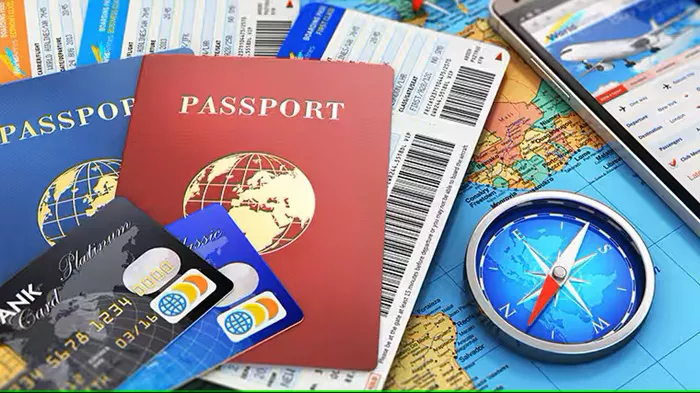1. Introduction
Planning a holiday is an exciting endeavor, filled with anticipation and dreams of adventure. However, amidst the excitement, it’s crucial to consider the importance of holiday insurance. Understanding when to purchase this type of insurance can save you from unexpected financial burdens. This comprehensive guide will delve into the various aspects of holiday insurance, helping you determine the optimal time to secure your coverage for a worry-free vacation.
2. What is Holiday Insurance?
2.1. Definition of Holiday Insurance
Holiday insurance, also known as travel insurance, is designed to protect travelers from financial losses related to unexpected events during their trip. This can include trip cancellations, medical emergencies, lost baggage, and other unforeseen incidents.
2.2. Importance of Holiday Insurance
Financial Security: Offers protection against non-refundable expenses.
Emergency Assistance: Provides coverage for medical emergencies and emergency evacuations.
Peace of Mind: Allows travelers to focus on enjoying their holiday rather than worrying about potential risks.
3. Types of Holiday Insurance Coverage
3.1. Trip Cancellation and Interruption Coverage
This coverage reimburses travelers for non-refundable costs if they have to cancel or interrupt their trip due to covered reasons such as illness, natural disasters, or family emergencies.
3.2. Medical Coverage
Medical insurance is essential for covering health-related expenses incurred during your trip, including doctor visits, hospitalization, and emergency transportation.
3.3. Baggage and Personal Belongings Coverage
This aspect provides reimbursement for lost, stolen, or damaged luggage, ensuring you’re compensated for your belongings.
3.4. Travel Delay Coverage
In cases of unexpected delays, this coverage can reimburse additional expenses incurred, such as accommodations or meals.
3.5. Emergency Evacuation Coverage
If a medical emergency requires evacuation from your holiday location, this coverage helps cover the costs of transport to a suitable medical facility.
See also: Navigating Carnival Cruise Insurance: What You Need to Know
4. When Should You Purchase Holiday Insurance?
4.1. At the Time of Booking
Purchasing holiday insurance at the time of booking your trip is one of the best practices. This ensures immediate coverage for any unforeseen events that may arise.
4.2. Prior to Departure
If you didn’t buy insurance at the time of booking, it’s crucial to secure it before you leave for your holiday. Many policies require you to purchase coverage within a certain time frame before your trip.
4.3. Last-Minute Bookings
For travelers making last-minute plans, it’s essential to obtain insurance as soon as the trip is confirmed. Many providers offer expedited options for last-minute insurance purchases.
5. Factors Influencing When to Get Holiday Insurance
5.1. Destination Risks
Certain destinations may pose higher risks, such as natural disasters, political unrest, or health concerns. Researching your destination can help determine when to secure insurance.
5.2. Personal Health Considerations
Travelers with pre-existing health conditions should consider obtaining insurance early to ensure coverage for medical issues that may arise during their trip.
5.3. Non-Refundable Costs
If your trip involves significant non-refundable expenses, securing insurance at the time of booking can protect your financial investment.
6. Understanding Policy Limits and Exclusions
6.1. Coverage Limits
Each insurance policy has specific limits, which are the maximum amounts the insurer will pay for various claims. Understanding these limits is essential for effective planning.
6.2. Common Exclusions
Familiarize yourself with common exclusions, such as pre-existing conditions or incidents arising from reckless behavior. Knowing these can help you avoid surprises when filing a claim.
7. The Claims Process: What to Expect
7.1. How to File a Claim
Understanding the claims process can streamline your experience should you need to utilize your insurance. This includes gathering necessary documentation and adhering to submission deadlines.
7.2. Required Documentation
Typically, you’ll need receipts, medical records, and any relevant reports (e.g., police reports for stolen items) when filing a claim.
7.3. Timelines for Claims Processing
Familiarize yourself with the usual timelines for claims processing to manage your expectations effectively.
8. Real-Life Scenarios Highlighting the Importance of Holiday Insurance
8.1. Case Study: Trip Cancellation
Explore a case where a traveler had to cancel their holiday due to an unexpected family emergency and successfully received reimbursement through their policy.
8.2. Case Study: Medical Emergency Abroad
Discuss a situation where a traveler experienced a medical emergency while on vacation, highlighting how insurance coverage facilitated necessary medical care.
8.3. Case Study: Lost Baggage
Present a scenario involving lost luggage and how the traveler benefitted from their baggage coverage to recover expenses.
9. Tips for Choosing the Right Holiday Insurance Policy
9.1. Assessing Your Travel Needs
Evaluate your specific travel plans, health needs, and potential risks to determine what coverage you need most.
9.2. Comparing Policies
Take the time to compare various policies from different providers to ensure you find the best coverage and price.
9.3. Reading the Fine Print
Thoroughly read policy documents to understand coverage limits, exclusions, and specific terms to avoid unexpected surprises.
10. Conclusion
Securing holiday insurance is a vital step in ensuring a smooth and enjoyable travel experience. By understanding when to purchase this coverage and the various types of protection available, travelers can embark on their journeys with confidence. The right insurance can provide the peace of mind needed to fully enjoy your holiday, knowing that you are financially protected against unforeseen events.
This comprehensive outline provides a detailed look at when to get holiday insurance, covering essential aspects and real-life scenarios to illustrate its importance. If you need any further elaboration or specific sections expanded, feel free to ask!





















